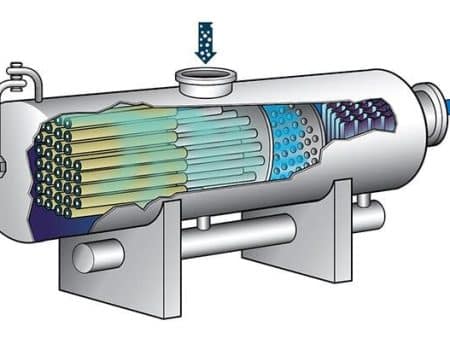What is a mag drive pump?
A mag-drive pump is a sealless centrifugal pump. It is essentially a chemical process pump that eliminates the need for shaft sealing that prevents any leakage normally associated with a conventional mechanically sealed pump.
Principle of operation: magnetic fields/magnetic attraction. An external magnet is placed on the motor drive shaft that transmits the motion to the internal magnet connected to the impeller, which then rotates and moves the fluid through the pump. A rear containment separates the external magnet and inner magnet can/shell that creates a hermetic enclosure (containment) of the liquid that has no access to the outside.
Why/When a mag-drive?
Think corrosive, combustible, toxic fluids. Also, tough to seal and expensive fluids.
Some examples of such products include:
- Hydrochloric Acid
- Sodium Hydroxide
- Sodium Hypochlorite
- Sulfuric Acid
- Ferric/Ferrous Chloride
- Nitric Acid
Some typical applications include:
- Rail Car/Tanker Unloading
- Chemical Processes
- Specialty Chemicals
- Scrubber OEMs
- Semi-Conductor
- Metal Finishing
- Water & Wastewater Treatment
Advantages/Benefits:
Improved Productivity – If a pump has no mechanical seal, a potential leak point is eliminated so hazardous fluids can be pumped without the worry of spillage. There are also cost advantages that exist without having mechanical seals, such as no maintenance costs for replacing and maintaining seals and no downtime and lost production on account of seal maintenance.
Safety First and Prevention of Fugitive Emissions – Fluids being pumped are often hazardous and dangerous to people (employees) working on or around pumps and pumping systems, not to mention the environmental concern caused by these fluids, many of which need to be regulated with contingency plan requirements in place. Mag-drive pumps prevent leakage and since there is no leakage, exposure to chemicals that can put people (employees) at risk is eliminated. Mag-drive pumps also prevent fugitive emissions such as volatile organic compounds (VOCs) and volatile hazardous air pollutants (VHAPs) so that companies can remain compliant (while avoiding costly fines) with local, state, and federal health and safety regulations/standards.
Disadvantages:
Solids – In applications involving even a small percentage of solids, a mag-drive pump is not a suitable solution. Mag-drive pumps should work only with clean liquids without solids in suspension.
Cost – Mag-drive pumps are usually more expensive than mechanically seal pumps. However, the additional cost may be offset when considering the reduced maintenance costs and advantages as referenced above. The long-term financial advantages and total cost of ownership should be considered when choosing this pump design.
Remember, for applications where the liquid is highly corrosive, toxic and/or expensive, where safety and cost efficiency are paramount, a magnetic drive pump is the best option because it is seal-less, meaning zero risk of leakage. Magnetic drive pumps are available in most metallurgies and materials, metallic and non-metallic. These pumps are very reliable, require very low maintenance thanks to their unique design, and designed to offer trouble-free performance over many years of service life.



